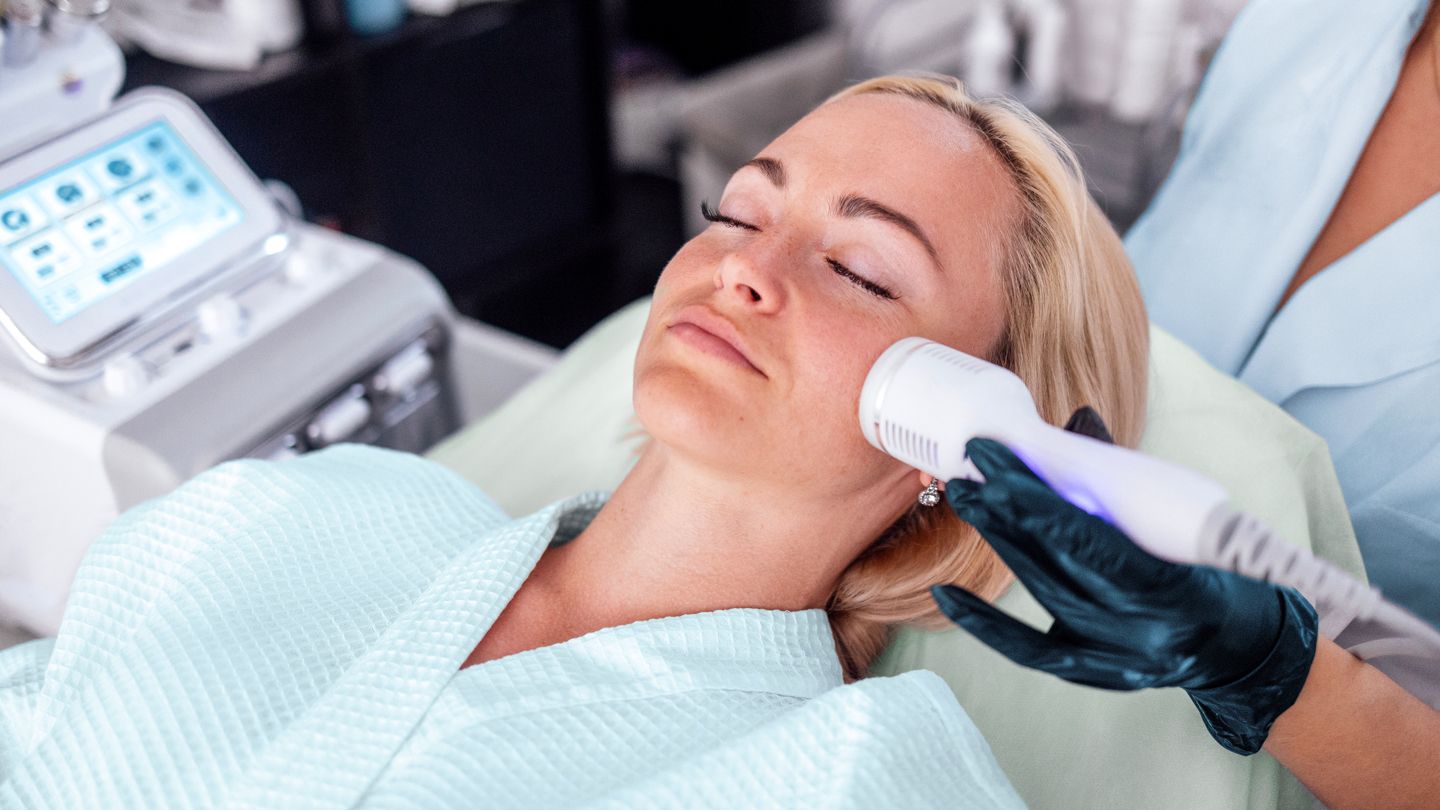Here are signs of a high-quality med spa plus red flags that suggest a med spa does not deserve your trust.
1. Expect to Be Counseled and Treated by Qualified Clinicians
But regardless of where you live, the clinicians in a med spa should share some consistent qualifications according to their role.
Explore the med spa website before making an appointment and look for the letters that come after the clinicians’ names. These credentials will correspond to their licenses and the types of certifications they hold.
Pay extra attention to the credentials of:
The medical director: This is the person who provides medical oversight of the treatments performed in the clinic. They are responsible for safety protocols and help to manage complications. In addition to providing care, they might oversee the business, daily operations, and quality of the practice.
The person who performs your treatment: The person who treats you (if different from the others on this list) also needs to work within their scope of practice. But for this category, regulations can vary widely from state to state. Frequently nurses will perform med spa treatments — depending on the state, a nurse may be licensed as an RN or LPN/LVN (licensed practical/vocational nurse). A licensed aesthetician may also perform some skin treatments such as facials and superficial chemical peels.
“When considering going to a med spa, ask who actually does your treatment and what their credentials are,” says Amy Anderson, MBA, a plastic surgery practice management consultant and cofounder of BrinsonAnderson Consulting. “A lot of people think, oh, it’s like getting my hair done, or my nails done — no, no, no, this is a medical treatment.”
2. Expect to Receive a Well-Considered Consultation First
Before you consent to or receive any med spa treatment, a “well-considered” consultation is a must, says Melinda Haws, MD, a board-certified plastic surgeon in Nashville and immediate past president of the Aesthetic Society.
“Well-considered” means you should expect to have a conversation with a qualified clinician about your concerns. They should ask you about your medical history and lifestyle, the cosmetic or wellness issues you would like to address, and any upcoming events you may have. (After certain skin treatments, for instance, you might be advised to avoid outdoor activities that could result in sun exposure.) Likewise, they should assess you physically (for instance, by examining areas of skin you are concerned about).
Be wary if the clinician fails to ask questions about your medications and medical history. Without that information they won’t know, for instance, if you have an allergy to a particular product they might use.
3. Expect Your Clinician to Discuss Risks, Benefits, and Goals With You
You need to know the risks, and (importantly) you need to know that the person treating you knows the risks. If a clinician can’t answer simple safety questions it should raise a red flag because they may not know what to do if something goes wrong.
If you are considering dermal filler injections, for instance, “The clinician should discuss the risk of blindness with you,” says Haws. “It’s very rare, but does happen.” Complications are always possible even if you have been getting cosmetic injectables for many years with no issues.
It’s important to know who to call for help if you have a concern or experience a bad reaction from a procedure after you go home. You don’t want to feel abandoned when you need help the most.
4. Expect a Clean Environment (‘Pretty’ Is Not Enough)
You can tell if a place feels clean, hygienic, and professional, continues Haws. But if you’re not sure what to look for, she says, some clean-clinic guidelines include the following:
- All instruments should be single use or come in sterilized packages.
- Clinicians should wash hands or sanitize every time they enter and exit the room.
- The facility should exclusively use medical-grade cleaning products designed for healthcare settings (you shouldn’t see or smell everyday household cleaning products like floral-scented floor cleaners).
Treatments can be done in a pretty, spa-like setting, but “pretty” doesn’t always mean clean. These are still medical procedures — they need to follow medical hygiene standards.
5. Expect Good, Clear Answers to Your Questions
Trust your instincts and speak up if something feels off. A prudent and caring clinician will be eager to answer your questions. If they’re rude or dismissive towards your concerns that, in itself, is a warning sign. Simple questions often can be the most telling.
6. Expect Before-and-After Photos
“Ask to see before-and-after photos of people they [personally] have treated, not just the practice,” Anderson says. If they don’t take before-and-after photos, that is concerning from a medical documentation perspective. “It ties into their professionalism and how detail-oriented they are if they are consistently getting before-and-after photos.”
7. Be Wary of Clinics That Offer Discounts or Claim to Be ‘the Only’ Place Offering a Particular Treatment
A promotion or discount may be tempting, but just say no to discounts or services advertised on discount platforms like Groupon. Also be leary of any prices that are far below the market rate for a particular service.
This is very risky because these products could be counterfeit and outright dangerous.
Read the full article here




